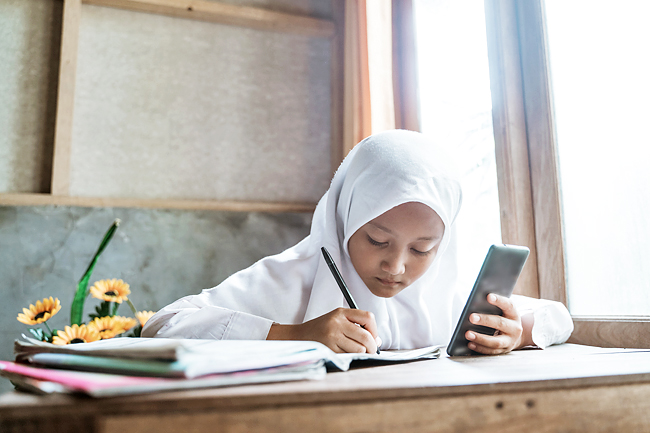My son will be sitting for his Religious Primary Schools Education Certificate (SSSRU) in November this year and a briefing for parents was held recently at my son’s religious school.
With the revised SSSRU format, private candidates are now allowed to sit for the religious exam, with certain terms and condition. This would give the opportunity for those who did not manage to complete their religious education to earn the certificate.
There were also changes to the passing requirement in the grouping of the religious subjects.
Candidates had to score credits (in all four compulsory subjects under Kumpulan A) – Al-Quran, Amali Ugama, Fiqh I and Tauhid – and any one of the subjects from Kumpulan B – Fiqh II, Fiqh III, Sejarah Islam, Akhlak, Tajwid and Faraidh. Successful candidates are those scoring a result of Grade 1, 2 or 3 with an aggregate numbering less than 30.
In the event a candidate fails to score a credit in any of the compulsory subjects under Kumpulan A, he or she is considered as having failed the exam, even if the candidate has passed in the other subjects.

The SSSRU candidates also had to sit for the oral exam where previously, they would be required to memorise and recite some of the short Surahs from Al-Quran. With the new amendment, candidates are graded and evaluated in terms of fluency and clarity in the memorisation of reciting Surah Al-Mulk (30 verses). I can imagine the pressure and the struggle the students face in terms of preparation, while also focusing on their academic studies (morning/afternoon session) at the same time.
Some parents are even considering looking for tutors to help with their children struggling with some of the religious subjects. The teachers at my son’s religious school are also proposing ‘extra classes’ for all the Primary 6 students where they are required to stay for an additional half an hour right after the end of their 5pm afternoon session.
As a Muslim parent, I commend and fully support the initiative of the government in imposing religious education for all students and it would be a blessing to have a child with a devout faith and be knowledgeable in Islamic studies. I also believe that a strong foundation of Islamic education can shape and nurture a growing child to be a responsible adult who is able to judge what is wrong and what is right.
According to the Examinations Division of the Islamic Studies Department under the Ministry of Religious Affairs, the passing rate for SSSRU in 2021 was 93.95 per cent. With the introduction of the revised format in 2022, only 62.72 per cent of students passed the exam.
The exam questions could be tweaked into a much more straight-forward format that would not be burdensome to the students, or getting back to the previous structure, which would produce less failing results.
Worried Ummi


